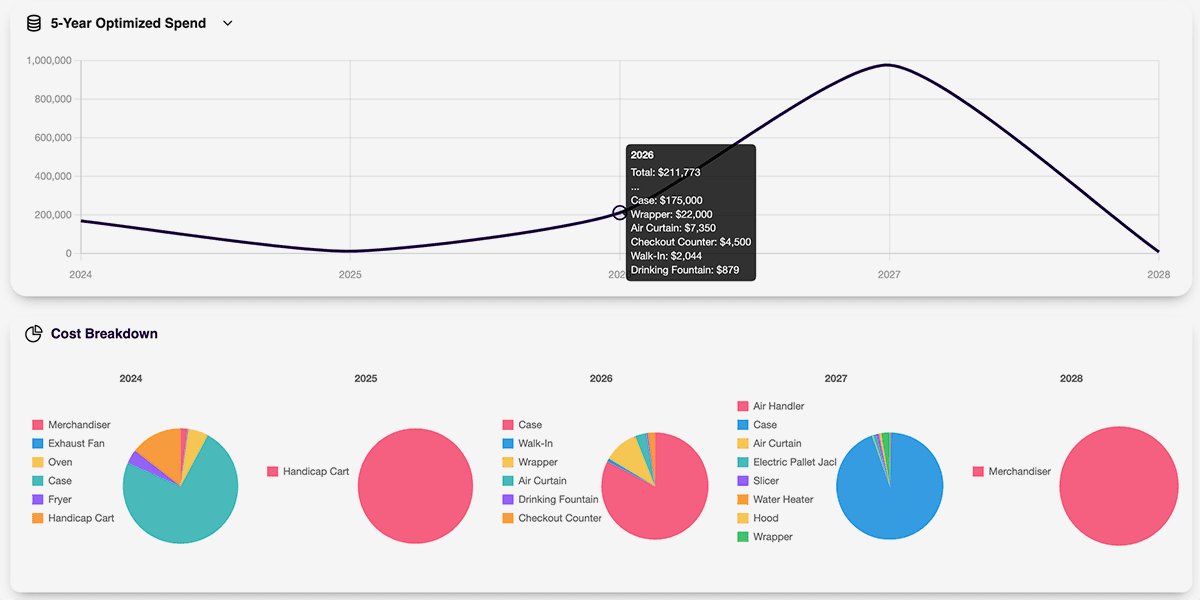Lately it feels like everyone is busy—too busy for their own good. For that reason, it can sometimes be difficult for facility managers to stay abreast of the latest technologies and changes in the best practices of facilities management. Understanding these advancements, however, is essential for staying ahead of your competition and managing a modern facility that meets the needs of employees and customers alike. This blog post will explore some recent developments in facilities management and discuss how they are transforming the sector—both now and into the future.
Emerging Trends
As with the evolution of the automobile from a dumb internal combustion machine to a “smart” electric vehicle, it is technological innovation that is driving the emerging trends in facilities management. For example, smart buildings incorporate automation and control systems to monitor the environment, efficiency, security, and safety of a facility and its contents. This enables facilities managers to make decisions based on real-time data that is gathered from within the structure and equipment.
Similarly, virtual reality (VR) is an important tool for the assessment and remote control of facilities. By using VR technology, facility managers can remotely inspect buildings and sites from anywhere in the world. This allows them to quickly identify changes or improvements that need to be made without having to travel long distances.
Other technology-driven trends include predictive maintenance and integrated services. Predictive maintenance (such as is provided by Data Fleet’s Property Echo platform) involves monitoring equipment over time so as to detect problems before they occur. And with integrated services, it is possible to have a single point of contact for all facilities management needs.
The Role of Big Data in an AIM Platform
“Big Data” refers to extremely large, detailed data sets that may be analyzed computationally to reveal patterns, trends, and associations. It can include various types of data from different sources, such as social networks, business transactions, internet of things (IoT) devices, and more. The key aspects of big data are often referred to as the “Three Vs”:
- Volume (the quantity of data);
- Velocity (the speed at which new data is generated and processed); and
- Variety (the type and nature of the data).
A case can be made that big data and AIM platforms were made for each other. The term itself practically begs to be loaded up with big data: Asset Information Management. What is an AIM platform, after all, but a digital database of all the assets within a facility? It stores both current and historical data on each asset, enabling facilities managers to identify trends and patterns to optimize performance and minimize costs.
Using an AIM platform fortified with big data, facilities managers can perform inventorying, tagging, and assessments on all your major assets and mechanical equipment, collecting data that is useful for predicting future needs and developing strategies to maximize efficiency.
Furthermore, big data analytics can be used to aggregate the huge amounts of information stored in an AIM platform like Property Echo, making it easier to identify trends or anomalies. Analytics can also help identify issues that need attention, as well as opportunities that can result in cost savings or improved performance.
By leveraging the power of big data, facilities managers can make more informed decisions regarding maintenance schedules, repair-or-replace conundrums, and other busines-level analytics that will ultimately improve their facility’s operations and productivity.
An AIM Is Not a CMMS
Major asset inventorying and tagging using Data Fleet’s Property Echo asset information manager (AIM) is a method of cataloging physical assets to streamline monitoring and management. Tags, each with a unique QR code, are affixed to each asset. When integrated into a CMMS system with other pre-existing data, companies can pull up maintenance schedules, determine an asset’s status, and more. The result is an organized collection of essential information, allowing you to manage assets and equipment now and long term across all your locations.
While Property Echo has proven itself to be a powerful tool for facilities managers, it is not (nor was intended to be) a full-scale replacement for a computerized maintenance management system such as ServiceChannel and other CMMS platforms. Rather, think of Property Echo as an asset information warehouse designed to keep your CMMS information evergreen. Paired with Facility AI, it supports granular analytics to provide both ease of use and robust business insights. In short, rather than compete with the asset module of a CMMS, Property Echo complements it.
With accurate data, you can significantly improve your operating cost and the time it takes to respond to issues by ensuring you can get the right service/solution provider to address your needs the first time. Thus, with the assistance of Property Echo, your CMMS will be able to unlock hidden cost-saving potential using the newly inventoried data.
Adapting to Change
Ready or not, it’s coming. The ability to adapt gracefully to new technologies and practices in facilities management is key for future success in that sector. To remain effective, facility managers must be able to embrace new technologies and strategies as they emerge to ensure their companies are running smoothly.
It is also important for facility managers to stay up-to-date on the latest trends in the industry so that they can develop effective long-term plans. By keeping an eye out for changes in technology, regulations, and best practices, they can make sure their facility is prepared for the future.
The potential for growth in this sector is exciting. With the proper investments in technology and data analytics, facilities management can be one of the most powerful tools available to owners of food service companies, real estate firms, convenience and grocery stores, retail shops, and other enterprises with significant investment in mission-critical equipment. Embracing change now will help ensure that your business is ready for whatever comes next.

In conclusion, it is clear that technology is playing a major role in the evolution of facilities management—and that these advances are quickly changing the way we do business. From predictive maintenance to integrated services built into sophisticated AIM platforms, there are numerous tools and resources available to help facility managers stay competitive and up-to-date. By understanding these trends, facilities managers can make better decisions that will benefit their organization in the long run.
By taking advantage of these technology advancements and implementing big data analytics, facilities managers are ensuring a more efficient, productive, and profitable future for themselves and their businesses. The future of facilities management is a promising one, and it’s important to stay on top of this ever-evolving sector. With the right tools and knowledge, you can confidently ensure your facility stays ahead of the competition in today’s dynamic environment.
Data Fleet is most assuredly not like other property condition assessment companies. Thanks to its innovative Property Echo platform, Data Fleet has become a pioneer in the field of asset information management (AIM). Combined with a modern and capable CMMS, this platform offers a unified location for clients to store their asset data, making it a comprehensive solution for facility management.
One of the standout features of Property Echo is its use of dynamic analytic data. It incorporates metrics such as Average Asset Lifespan, Predictive Spend, and Average Yearly Maintenance Cost, among others. This deep dive into analytics helps drive strategic decision-making and optimizes asset management.
The versatility of the Property Echo platform underscores Data Fleet’s commitment to innovation and cutting-edge technology. It is a technology that enhances the efficiency of your CMMS and the accuracy of asset management, enabling users to get the most out of their assets.
Data Fleet, through its Property Echo platform, is redefining the landscape of facility management. By combining robust data capture services, powerful analytics, and AI technology, it provides an unmatched solution for efficient and effective asset management.

















